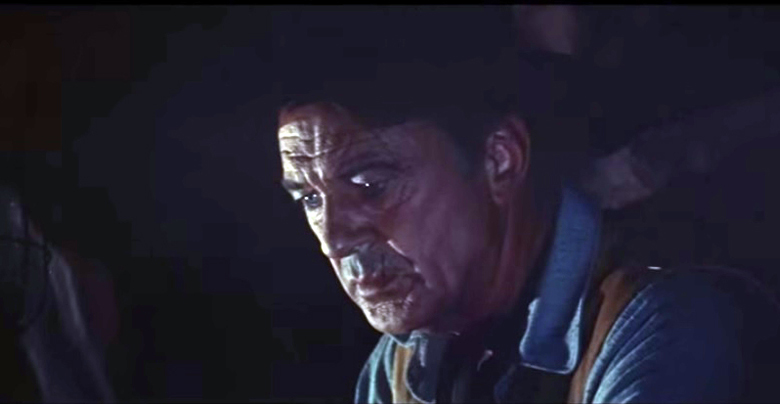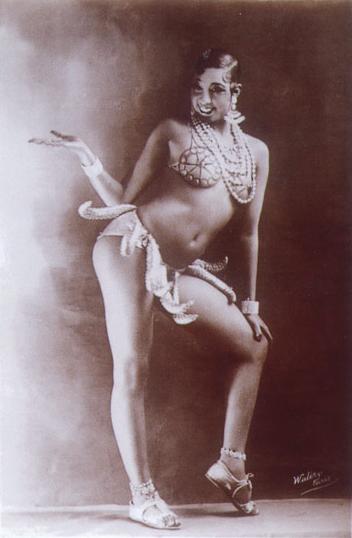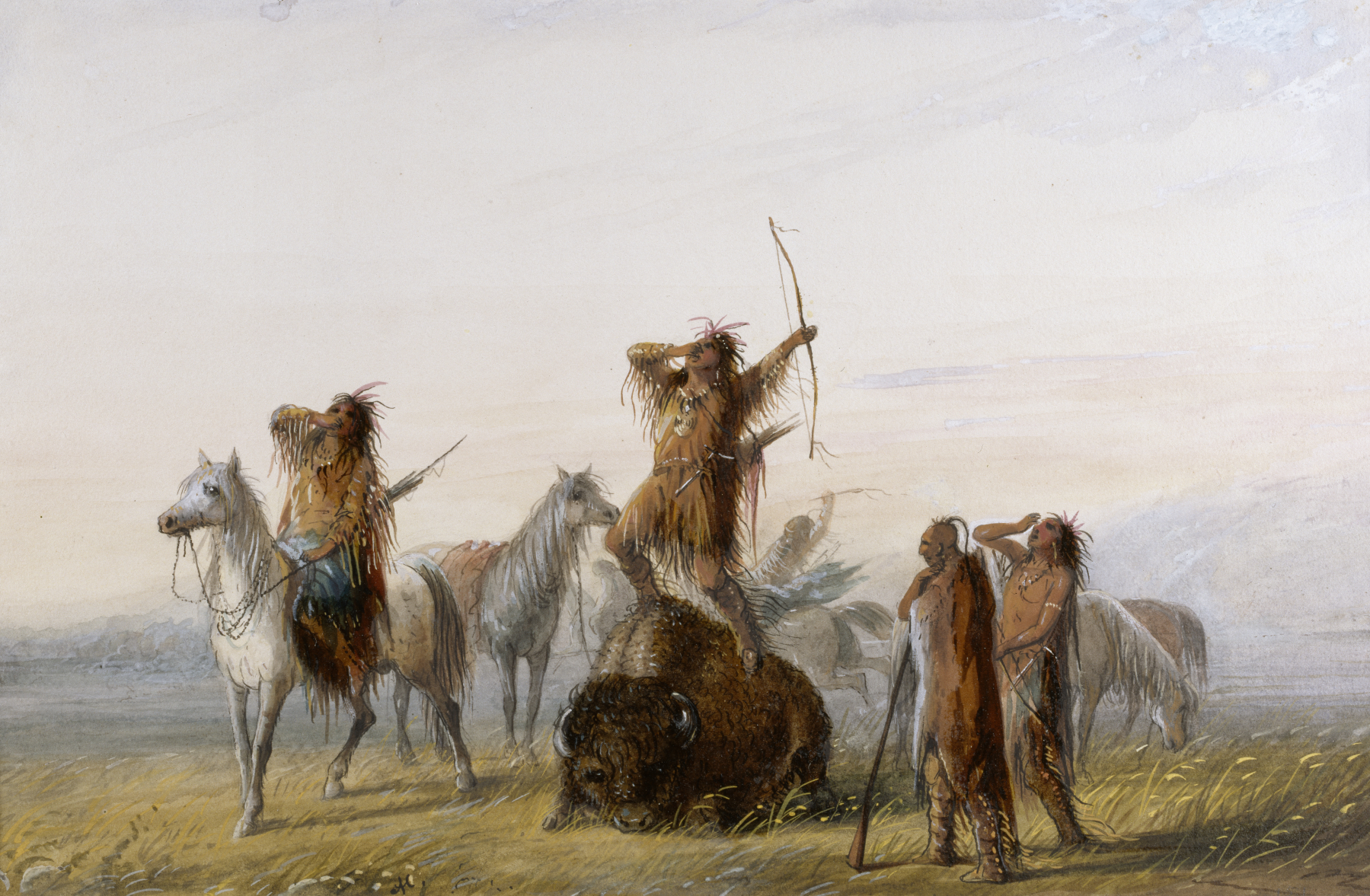|
Man Of The West
''Man of the West'' is a 1958 American Western film noir film starring Gary Cooper and directed by Anthony Mann, produced by Walter Mirisch and distributed by United Artists. The screenplay, written by Reginald Rose, is based on the 1955 novel ''The Border Jumpers'', by Will C. Brown. Julie London, Lee J. Cobb, Jack Lord, and Arthur O'Connell co-star with John Dehner, Robert J. Wilke, and Royal Dano in supporting roles. The film is one of Cooper's final Westerns. Former outlaw Link Jones (Cooper) travels from his small town to Crosscut Texas to catch a train to Fort Worth to hire the town's first schoolteacher. When his train stops for refuelling on the way, they are set upon by armed robbers but the train pulls away, leaving behind Jones, the fast-talking gambler Sam Beasley (O'Connell) and saloon singer Billie Ellis (London). They start walking and eventually reach a place that Link knows well: the farmhouse where he once lived. There he finds the men who robbed the train and ... [...More Info...] [...Related Items...] OR: [Wikipedia] [Google] [Baidu] |
Walter Mirisch
Walter Mortimer Mirisch (born November 8, 1921) is an American film producer. He is president and executive head of production of The Mirisch Corporation, an independent film production company, which he formed in 1957 with his brother Marvin and half-brother Harold. He won the Academy Award for Best Picture as producer of '' In the Heat of the Night'' (1967). Life and career Early years Born to a Jewish familyJewish Journal: "At Pepperdine, ruminations on Hollywood’s patrimony straight from its (Jewish) patriarchy" by Danielle Berrin October 6, 2013 , cached version at in New York, Mirisch is the y ... [...More Info...] [...Related Items...] OR: [Wikipedia] [Google] [Baidu] |
Jean-Luc Godard
Jean-Luc Godard ( , ; ; 3 December 193013 September 2022) was a French-Swiss film director, screenwriter, and film critic. He rose to prominence as a pioneer of the French New Wave film movement of the 1960s, alongside such filmmakers as François Truffaut, Agnès Varda, Éric Rohmer, and Jacques Demy. He was arguably the most influential French filmmaker of the post-war era. According to AllMovie, his work "revolutionized the motion picture form" through its experimentation with narrative, continuity editing, continuity, film sound, sound, and cinematography, camerawork. His most acclaimed films include ''Breathless (1960 film), Breathless'' (1960), ''Vivre sa vie'' (1962), ''Contempt (film), Contempt'' (1963), ''Bande à part (film), Band of Outsiders'' (1964), ''Alphaville (film), Alphaville'' (1965), ''Pierrot le Fou'' (1965), ''Masculin Féminin'' (1966), ''Weekend (1967 film), Weekend'' (1967), and ''Goodbye to Language'' (2014). During his early career as a film critic f ... [...More Info...] [...Related Items...] OR: [Wikipedia] [Google] [Baidu] |
12 Angry Men (1957 Film)
''12 Angry Men'' is a 1957 American courtroom drama film directed by Sidney Lumet, adapted from a 1954 teleplay of the same name by Reginald Rose. The film tells the story of a jury of 12 men as they deliberate the conviction or acquittal of a teenager charged with murder on the basis of reasonable doubt; disagreement and conflict among them force the jurors to question their morals and values. It stars Henry Fonda (who also produced the film with Reginald Rose), Lee J. Cobb, Ed Begley, E. G. Marshall, and Jack Warden. ''12 Angry Men'' explores many techniques of consensus-building and the difficulties encountered in the process among this group of men whose range of personalities adds to the intensity and conflict. The jury members are identified only by number; no names are revealed until an exchange of dialogue at the very end. The film forces the audience to evaluate their own self-image through observing the personalities, experiences, and actions of the jurors. The film i ... [...More Info...] [...Related Items...] OR: [Wikipedia] [Google] [Baidu] |
High Noon
''High Noon'' is a 1952 American Western film produced by Stanley Kramer from a screenplay by Carl Foreman, directed by Fred Zinnemann, and starring Gary Cooper. The plot, which occurs in real time, centers on a town marshal whose sense of duty is tested when he must decide to either face a gang of killers alone, or leave town with his new wife. Though mired in controversy at the time of its release due to its political themes, the film was nominated for seven Academy Awards and won four (Actor, Editing, Score and Song) as well as four Golden Globe Awards (Actor, Supporting Actress, Score, and Black and White Cinematography).IMDB List of nominations and awards for 's ''High Noon''. The award-winning ... [...More Info...] [...Related Items...] OR: [Wikipedia] [Google] [Baidu] |
Tom London
Tom London (born Leonard T. Clapman; August 24, 1889 – December 5, 1963) was an American actor who played frequently in B-Westerns. According to ''The Guinness Book of Movie Records'', London is credited with appearing in the most films in the history of Hollywood, according to the 2001 book ''Film Facts'', which says that the performer who played in the most films was "Tom London, who made his first of over 2,000 appearances in '' The Great Train Robbery, 1903''. He used his birth name in films until 1924. Life and career Born in Louisville, Kentucky, London got his start in movies as a props man in Chicago, Illinois. His debut was in 1915 in the Western ''Lone Larry'', performing under his own name. The first film in which he was billed under his new name was ''Winds of Chance'', a World War I film, in which he played "Sgt. Rock". London was a trick rider and roper, and used his trick skills in scores of Westerns. In the silent-film era, he often played villainous roles, ... [...More Info...] [...Related Items...] OR: [Wikipedia] [Google] [Baidu] |
Frank Ferguson
Frank S. Ferguson (December 25, 1906 – September 12, 1978) was an American character actor with hundreds of appearances in both film and television. Background Ferguson was the younger of two children of W. Thomas Ferguson, a native Scottish merchant, and his American wife Annie Boynton. He grew up in his native Ferndale. He graduated from Ferndale Union High School in 1927. He earned a bachelor's degree in speech and drama at the University of California and a master's degree from Cornell University. He also taught at UCLA and Cornell. As a young man, he became connected with Gilmor Brown, the founder and director of the Pasadena Community Playhouse, and became one of its first directors. He directed as well as acted in many plays there. He also taught at the Playhouse. He made his film debut in 1939 in ''Gambling on the High Seas'' (released in 1940), and appeared in nearly 200 feature films and hundreds of TV episodes subsequently. Career Ferguson's best known role was ... [...More Info...] [...Related Items...] OR: [Wikipedia] [Google] [Baidu] |
Chief Tahachee (actor)
Chief Tahachee (born Jeff Davis "Tahchee" Cypert, March 4, 1904 – June 9, 1978) was a writer, a stage actor, a film extra, and a vaudeville performer. He claimed to be a descendant of the Old Settler Cherokees. Chief Tahachee wrote four books: ''Poems of Dreams'' (1942), ''Drifting Sands'' (1950), ''An American Indian Climb Toward Truth & Wisdom'' (1955), and ''The Rough and Rowdy Ways of an American Indian Cowboy'' (1957). ''Poems of Dreams'' was his most popular and he renewed the copyright on it October 1972. Chief Tahachee was an actor, stuntman and film extra in many Hollywood films produced from the 1920s to the 1960s, including westerns, film noir, drama, and historical sagas. His first film appearance was in a silent film, ''The Last of the Mohicans'', in 1920 at the age of 16. Tahachee was married to poet and Hollywood film extra Dorothy Lear Evelyn Teters Cypert "Nawana" Yarbrough, who also went by "Princess Neowana." After their divorce married six more times, h ... [...More Info...] [...Related Items...] OR: [Wikipedia] [Google] [Baidu] |
Emory Parnell
Emory Parnell (December 29, 1892 – June 22, 1979) was an American vaudeville performer and actor who appeared in over 250 films in his 36-year career. Early years Born in St. Paul, Minnesota, Parnell trained as a musician at Morningside College, a Methodist institution in Sioux City, Iowa. He spent eight months in the Arctic in 1929, looking for gold in that area's wastelands. He also worked as a telegrapher. Music Parnell spent his early years as a concert violinist. He performed on the Chautauqua and Lyceum circuits until 1930, when he relocated to Detroit, Michigan, to narrate and act in commercial and industrial films. A 1923 newspaper article described an upcoming Lyceum performance of "Emory Parnell, the one man band," saying that Parnell "plays an accordion, the snare drum and base icdrum, all at the same time." During part of the Chautauqua years, Parnell had a family act that included his wife. In 1970, she recalled, " covered every state as well as Canada, ... [...More Info...] [...Related Items...] OR: [Wikipedia] [Google] [Baidu] |
Ghost Town
Ghost Town(s) or Ghosttown may refer to: * Ghost town, a town that has been abandoned Film and television * Ghost Town (1936 film), ''Ghost Town'' (1936 film), an American Western film by Harry L. Fraser * Ghost Town (1956 film), ''Ghost Town'' (1956 film), an American Western film by Allen H. Miner * Ghost Town (1988 film), ''Ghost Town'' (1988 film), an American horror film by Richard McCarthy (as Richard Governor) * Ghost Town (2008 film), ''Ghost Town'' (2008 film), an American fantasy comedy film by David Koepp * ''Ghost Town'', a 2008 TV film featuring Billy Drago * ''Derek Acorah's Ghost Towns'', a 2005–2006 British paranormal reality television series * Ghost Town (CSI: Crime Scene Investigation), "Ghost Town" (''CSI: Crime Scene Investigation''), a 2009 TV episode Literature * Ghost Town (Lucky Luke), ''Ghost Town'' (''Lucky Luke'') or ''La Ville fantôme'', a 1965 ''Lucky Luke'' comic *''Ghost Town'', a Beacon Street Girls novel by Annie Bryant *''Ghost Town'', a 199 ... [...More Info...] [...Related Items...] OR: [Wikipedia] [Google] [Baidu] |
Gary Cooper In Man Of The West 1958
Gary may refer to: *Gary (given name), a common masculine given name, including a list of people and fictional characters with the name *Gary, Indiana, the largest city named Gary Places ;Iran *Gary, Iran, Sistan and Baluchestan Province ;United States *Gary (Tampa), Florida * Gary, Maryland *Gary, Minnesota *Gary, South Dakota *Gary, West Virginia *Gary – New Duluth, a neighborhood in Duluth, Minnesota *Gary Air Force Base, San Marcos, Texas *Gary City, Texas Ships * USS ''Gary'' (DE-61), a destroyer escort launched in 1943 * USS ''Gary'' (CL-147), scheduled to be a light cruiser, but canceled prior to construction in 1945 * USS ''Gary'' (FFG-51), a frigate, commissioned in 1984 * USS ''Thomas J. Gary'' (DE-326), a destroyer escort commissioned in 1943 People and fictional characters *Gary (surname), including a list of people with the name *Gary (rapper), South Korean rapper and entertainer *Gary (Argentine singer), Argentine singer of cuarteto songs Other uses *'' Gary: ... [...More Info...] [...Related Items...] OR: [Wikipedia] [Google] [Baidu] |
Striptease
A striptease is an erotic or exotic dance in which the performer gradually undresses, either partly or completely, in a seductive and sexually suggestive manner. The person who performs a striptease is commonly known as a "stripper" or an "exotic dancer". In Western countries, the venues where stripteases are performed on a regular basis are now usually called strip clubs, though they may be performed in venues such as pubs (especially in the United Kingdom), theaters and music halls. At times, a stripper may be hired to perform at a bachelor or bachelorette party. In addition to providing adult entertainment, stripping can be a form of sexual play between partners. This can be done as an impromptu event or – perhaps for a special occasion – with elaborate planning involving fantasy wear, music, special lighting, practiced dance moves, or unrehearsed dance moves. Striptease involves a slow, sensuous undressing. The stripper may prolong the undressing with dela ... [...More Info...] [...Related Items...] OR: [Wikipedia] [Google] [Baidu] |
Coup De Grâce
A coup de grâce (; 'blow of mercy') is a death blow to end the suffering of a severely wounded person or animal. It may be a mercy killing of mortally wounded civilians or soldiers, friends or enemies, with or without the sufferer's consent. Methods Examples of coup de grâce include shooting the heart or head (typically the back of the skull) of a wounded, but still living, person during an execution or by humanely killing a suffering, mortally wounded soldier, in war, for whom medical aid is not available. In pre-firearms eras the wounded were finished with edged or impact weapons to include cutting throats, blows to the head, and thrusts to the heart. Other examples include the officer leading a firing squad administering a coup de grâce to the condemned with a pistol if the first hail of gunfire fails to kill the prisoner; or a ''kaishakunin'' who performs a beheading to quickly end a samurai's agony after seppuku. Other uses The phrase may also refer to the final even ... [...More Info...] [...Related Items...] OR: [Wikipedia] [Google] [Baidu] |

_-_1.jpg)

